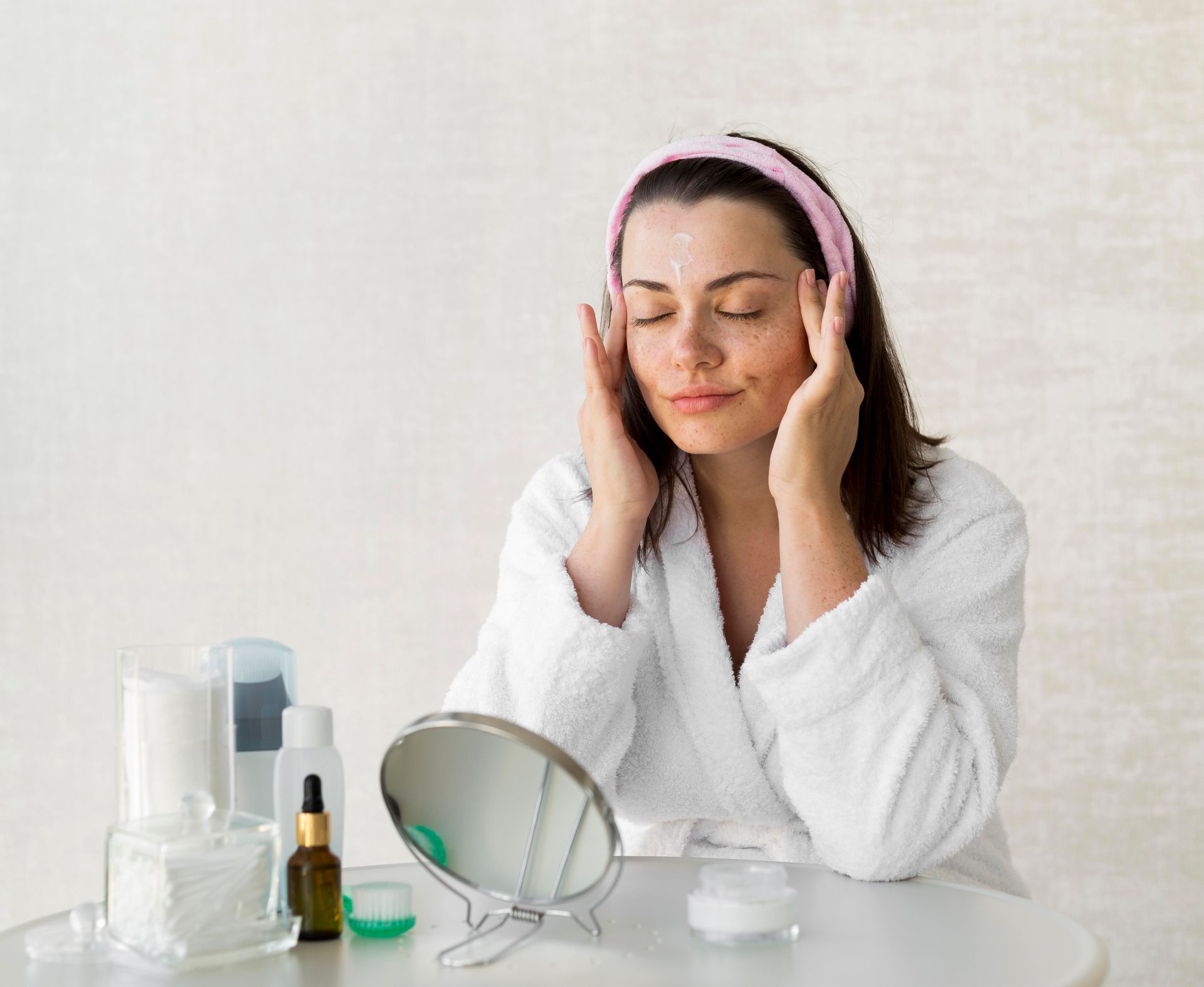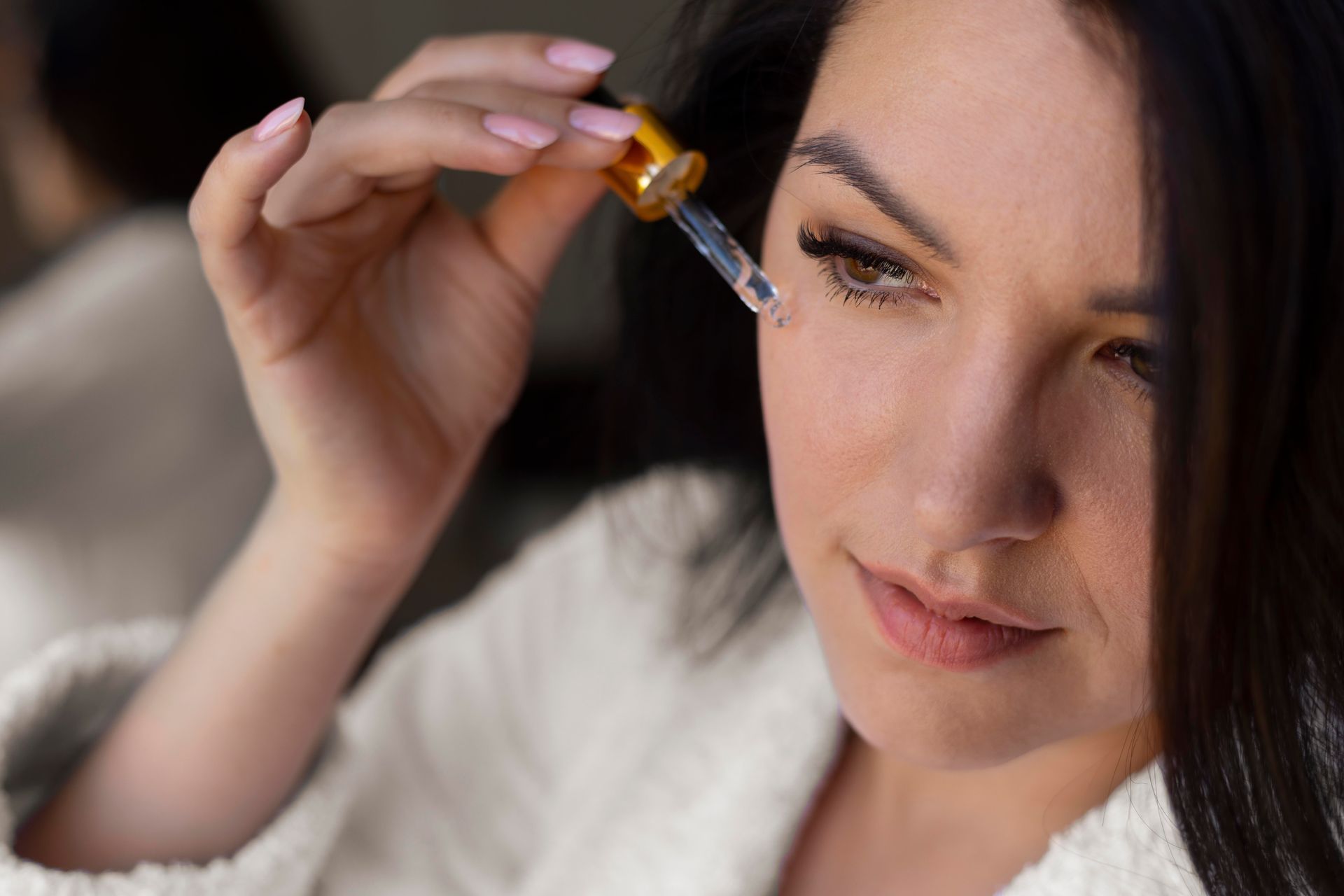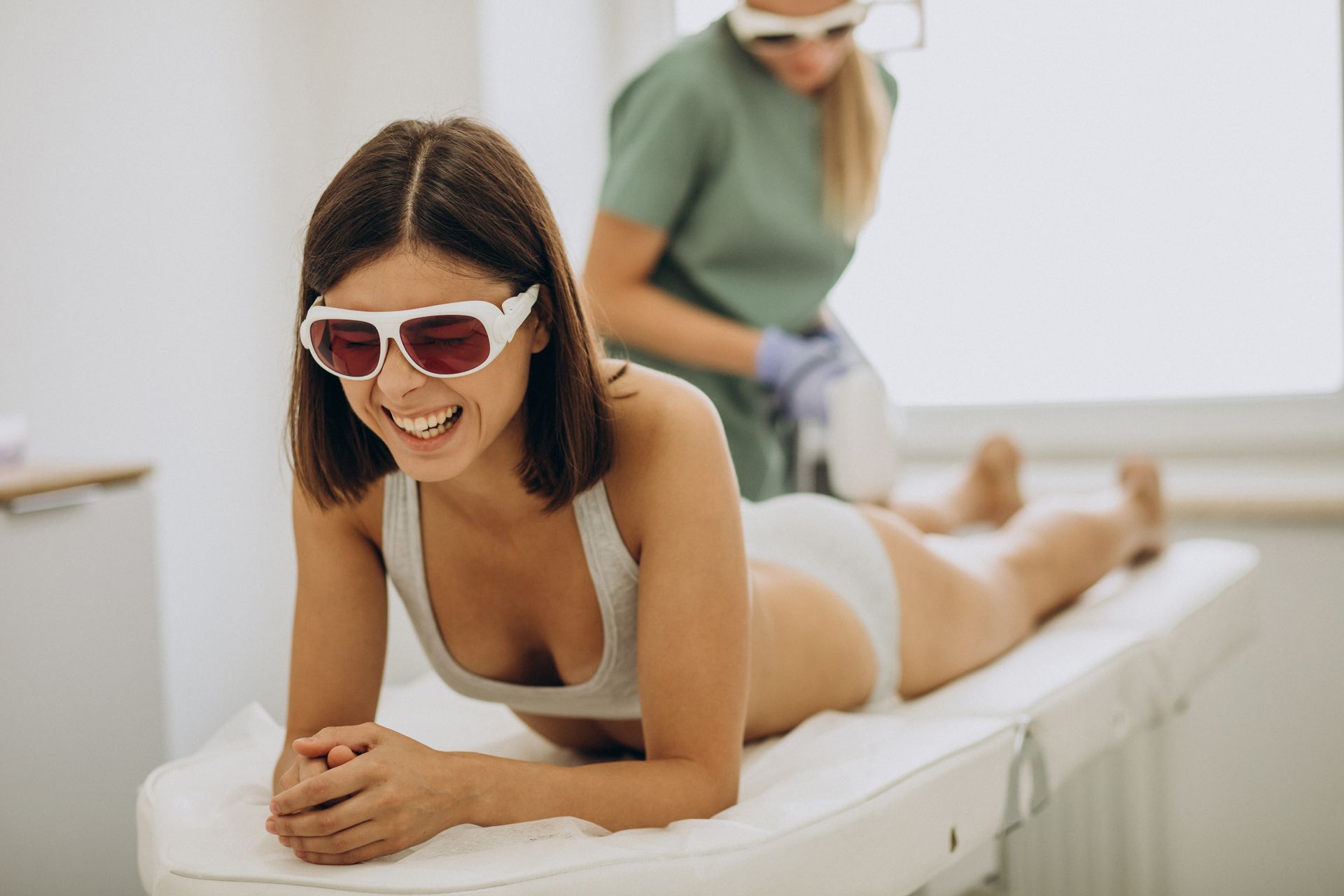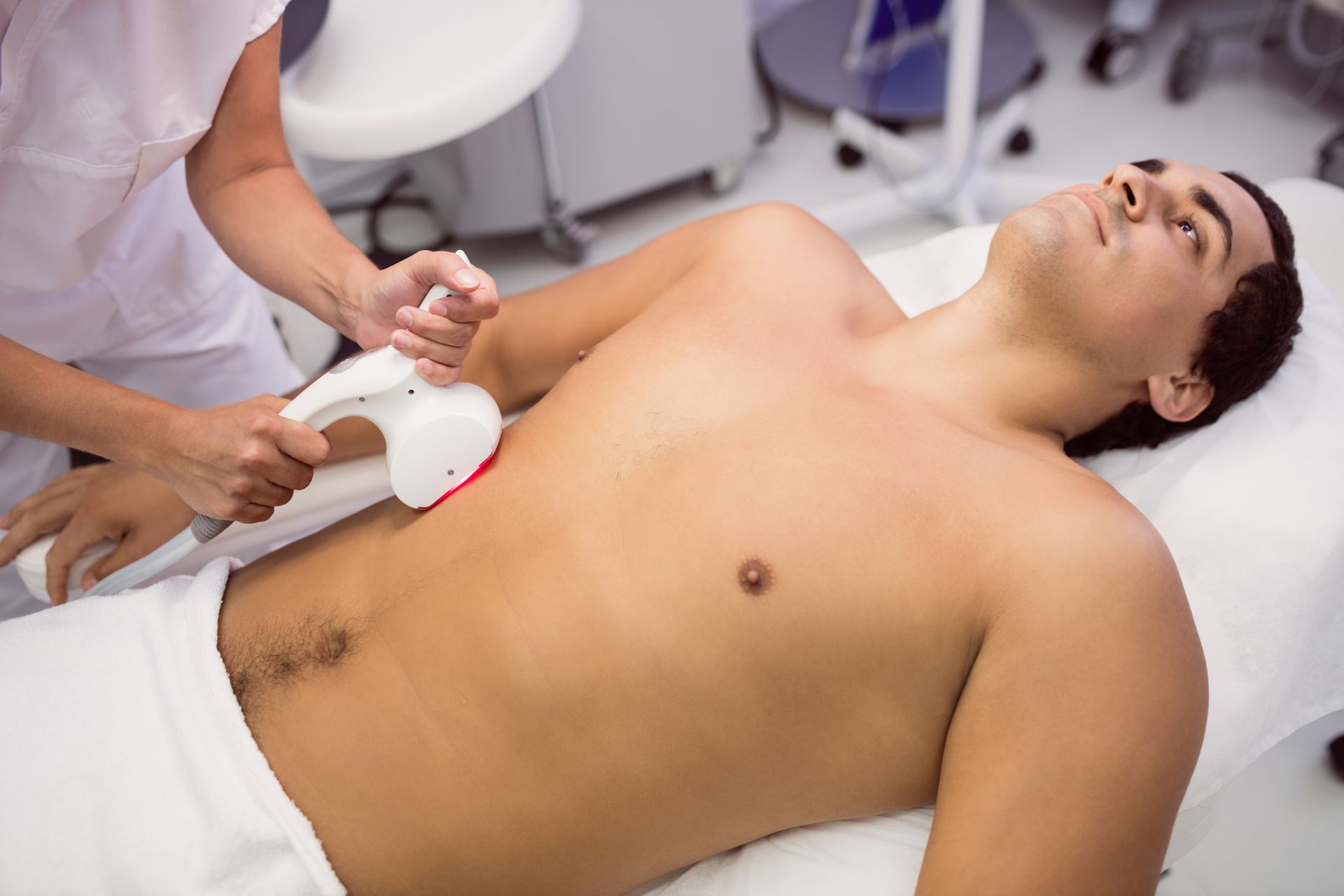Is Laser Hair Removal Good for the Face? A Friendly, Honest Guide
Unwanted facial hair can feel like an everyday battle—whether it’s peach fuzz on the cheeks, coarse chin hair, or the shadow above your lips. And while shaving, threading, waxing, and depilatory creams may offer short-term relief, the constant maintenance can be frustrating, not to mention irritating for your skin. That’s why many people are turning to laser hair removal for a longer-lasting, more efficient solution. But is laser hair removal really good for your face?
In this in-depth guide, we’ll explore the benefits, risks, potential side effects, causes of complications, and how to make laser facial hair removal a safe and successful experience—especially when done with trusted professionals like those at Huggie Beauty. So, let’s break it all down.
What to do after laser hair removal?
Why People Choose Laser Hair Removal for the Face
Let’s start with the basics. Laser hair removal uses a concentrated beam of light to target and destroy hair follicles, reducing hair growth over time. It's a semi-permanent solution that can drastically minimize the need for daily or weekly hair removal routines.
People often opt for facial laser treatments because the results are smoother, more lasting, and reduce irritation compared to shaving or waxing. The technology is advanced enough today to precisely target small facial areas—like the upper lip, chin, jawline, and even sideburns—without damaging the surrounding skin.
For many, the appeal is simple: less hair, less hassle.
Is It Really Safe for the Face?
Yes, when done correctly—and by professionals—laser hair removal is safe for most facial areas. However, the skin on your face is more delicate than, say, your legs or back. That’s why choosing a certified technician, such as those at Huggie Beauty, is crucial.
The equipment used must be tailored to your skin tone, hair type, and sensitivity level. Facial skin also gets more exposure to the sun and environmental factors, so improper aftercare can increase risks like pigmentation or irritation.
What Causes Facial Hair to Be a Concern?
Before diving into treatment, it's helpful to understand why facial hair can become more prominent or problematic. Some common causes include:
Hormonal Imbalance – Conditions like PCOS (Polycystic Ovary Syndrome) or thyroid issues can trigger excess facial hair growth.
Genetics – Your family history plays a role in your hair type and thickness.
Medications – Certain drugs may stimulate hair growth.
Aging – Hormonal shifts in your 30s, 40s, and beyond may lead to new hair growth on the face.
Laser hair removal won’t cure these root causes, but it can significantly reduce hair visibility, helping you feel more confident in your skin.
The Risks Involved: Let’s Talk Honestly
No cosmetic treatment is without risks, and facial laser hair removal is no exception. While it's generally safe, some people may experience side effects, especially if the treatment isn't customized properly.
Skin Irritation
Temporary redness, swelling, or a warm sensation are common, especially immediately after a session. This is usually mild and fades within a few hours.
Pigmentation Changes
One of the bigger concerns with facial laser treatment is hyperpigmentation (darkening) or hypopigmentation (lightening). These are more likely to occur in people with darker skin tones or when the skin is exposed to sunlight too soon after treatment.
Burns or Blisters
Rare, but possible—especially if the laser settings aren’t adjusted to your skin’s needs. That's why skilled technicians, like the ones at Huggie Beauty, conduct patch tests and customize your treatment plan to prevent such outcomes.
Eye Damage
This is why both you and the technician must wear protective goggles. The laser can cause serious harm if directed too close to the eyes without proper shielding.
Acne or Breakouts
While laser treatments don’t cause acne, the heat may trigger temporary breakouts in acne-prone skin due to increased oil production or irritation from topical products used after the session.
How does laser hair removal work on face
Step-by-Step: What to Expect from Your Facial Laser Hair Removal Journey
Now that we’ve covered the why and the risks, let’s walk through the process step by step so you know exactly what to expect.
Step 1: Consultation with the Experts
At Huggie Beauty, your journey begins with a personalized consultation. The technician will assess your skin tone, hair color, medical history, and treatment goals to determine if you’re a good candidate.
This is also when they explain how many sessions you may need—typically 6 to 8 spaced a few weeks apart for the best results.
Step 2: Patch Test
Before diving into a full-face session, a patch test is performed. This helps determine how your skin reacts and whether any adjustments to the laser settings are needed.
Step 3: Pre-Treatment Prep
You’ll be asked to avoid sun exposure, tanning beds, and skincare products with retinoids or glycolic acid for at least a week before your appointment. Shaving the treatment area a day before is also advised.
Don’t wax or pluck—laser targets the hair follicle, and those methods remove it completely.
Step 4: The Actual Session
The laser technician will clean your face, provide protective eyewear, and begin the treatment. You might feel a rubber band snap-like sensation, but most find it tolerable. Sessions last anywhere from 10 to 30 minutes depending on the area.
Step 5: Post-Treatment Care
You’ll be advised to avoid sun exposure, hot showers, and harsh skincare products for at least 48 hours. Apply aloe vera or a calming cream to reduce redness. At Huggie Beauty, you’ll also receive custom aftercare instructions based on your skin type.
Common Challenges and How to Tackle Them
While the results are rewarding, the road to smooth skin isn’t always bump-free. Some common challenges include:
Slow Results
Laser hair removal is a gradual process. You won’t be hair-free overnight, and some areas may require more sessions than others. Patience is key.
Patchy Results
Hair grows in cycles. If a follicle is in its dormant phase, the laser won’t be as effective. This is why multiple sessions are needed to catch each cycle.
Regrowth
While laser reduces hair significantly, some fine or light hair may return, especially on the face. Maintenance sessions every few months can help keep things smooth.
Expense
Yes, it’s more expensive upfront than shaving or waxing. But long term? You’ll likely save both time and money. Many clients find the investment worth it for the convenience and confidence it brings.
Preventive Measures for a Safer Experience
Here’s how to make sure your facial laser treatment is both safe and successful:
Choose a qualified technician. Always go to a licensed expert. Huggie Beauty is known for its trained professionals and high safety standards.
Stick to the schedule. Skipping sessions or overdoing them can mess with your results.
Protect your skin from the sun. SPF is a must—every single day.
Avoid harsh products. Put retinol, acids, and exfoliants on pause for a few days before and after treatment.
Communicate. Tell your technician about any skin changes, medications, or unusual reactions.
So, Is Laser Hair Removal Good for the Face?
In a word? Yes—if done right. When performed by skilled professionals, laser hair removal for the face can be a game-changer. It saves time, boosts confidence, and minimizes the constant cycle of shaving, plucking, or waxing.
But it’s not magic. It requires commitment, proper care, and expert handling. That’s where Huggie Beauty truly shines—by offering customized treatments tailored to your unique needs, with safety and satisfaction as top priorities.
Final Thoughts: Smoother Days Ahead
Choosing laser hair removal for your face isn’t just a beauty decision—it’s a lifestyle upgrade. With realistic expectations, proper guidance, and a bit of self-care, it can deliver smoother skin, fewer breakouts, and the confidence that comes with feeling fresh-faced every day.
And remember, your face is your most visible canvas. Trust it to professionals who treat it with the respect it deserves. For those seeking a place that combines care, experience, and cutting-edge technology, Huggie Beauty is a name you can rely on.
Because when it comes to your face, nothing should be left to chance.










